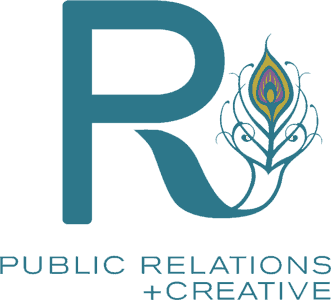Did you know that 30.6% of businesses fail in the first two years, 49.7% fail after five years, and only 65.5% stay active for up to 10 years? Investopedia identified poor internet presence and marketing as the top reasons for this failure. As a prospective business owner, investing in a solid promotional mix strategy that involves PR campaigns will help you gain public attention, build brand awareness and communicate product relevance effectively. However, consider a few things before setting up your business or investing in a PR campaign. These include target audience, messaging, when to start, strategies to implement, hiring in-house or agency PR services, and tools for successful PR campaigns. Being a professional PR agency, this article will answer these questions to help you get the best results.
Your Target Audience
The target audience is the first building block for a business considering PR strategy in its marketing mix. Every product or service is designed to solve a problem for a specific demographic, and knowing your target audience guides that direction regarding messaging. As such, effective PR for a new business relies heavily on clearly defined target audience personas.
You should understand your target audience like you do a friend. Important information includes what they like, what content distribution channel they frequent, what relevant topics they interact with, and other demographic details. For example, if you have demographics that skew older in your target audience, newspaper, and TV PR campaigns might be more effective than social media platforms like TikTok or online news publications. Note that the who will guide the what, when, and how for a practical PR approach.

Your Messaging and Positioning
In PR, positioning, and messaging refer to how you describe your unique value. Humans are complex beings, and every business niche has at least one or two competitors. If you want to start a business that gets attention online, becomes the talk of the town, and appeals to customers’ inner desires, then your messaging and positioning must be ironclad. You must consider all factors, including the customer’s voice, prohibited phrases, how they want to be addressed, your brand tone, and, most importantly, your brand story. You will build lasting relationships or a loyal customer base with a story that emphasizes what the target audience wants, their inner desire, pain, and aspirations.
When to Start Running PR Campaigns
The question about when to run your first campaign has no specific answers. Why? Public relations is a tool for creating attention for your products, services, etc., and different businesses have varying business goals. However, as a new business, it’s best to start running a campaign just before or immediately after you launch. You want to introduce your business to the market early, so your customers can follow your journey and develop an emotional connection to the brand.
Your PR Strategy

A PR strategy defines the method you adopt to launch a successful campaign. A well-defined strategy is highly organized and highlights all campaign elements. As a new business owner, some of the tactics that make up your PR strategy may include the following:
- Press releases to build brand awareness and generate backlinks.
- Interviews with local TV stations and media outlets to trigger brand conversation and visibility.
- Engage in community and industry events as speakers, panelists, or participants to build PR relationships with important stakeholders and promote products.
- Social media to create buzz and improve brand awareness and customer engagement.
- Partner with influencers to boost brand trust rating and drive sales.
- Publicity stunts to generate attention and get the conversation going about your upcoming product launch.
In-house Versus PR Agency
Hiring professionals matters when starting a new business that integrates PR strategy into your promotional mix. There are a few things to consider regarding in-house versus PR agencies, like budget, expertise, and goals.

A PR agency is usually less capital-intensive than an in-house PR person or team. Besides the cost, hiring an agency offers better results for new businesses as they have more experience in the industry and established relationships with media personnel. While in-house PR might take time to test different approaches, an agency can implement the best tactics immediately and get good results.
PR Management and Measurement Tools
Whether you create your PR campaign in-house or hire a PR agency, it’s best to have real-time tools to track campaign performance. Here’s a list of the best PR tools to consider.
- Muck Rack
- Anewstip
- HARO
- Brand24
- Google Alerts
- Brandwatch
Getting Started with PR for a New Business
Starting a business that integrates PR strategy into the promotional marketing mix without considering key factors is risky. You must arm yourself with information about significant PR elements, ready to hit the ground running from day one. Consider factors like target audience, brand messaging, positioning, when to start, and the best strategies and tools. Once you have these covered, you are one step closer to creating an effective PR campaign that creates buzz for your business and drives profitable actions. Need help with getting started? Schedule a call with our professional PR team to see how we can help your new business or product with strategic PR activities.
